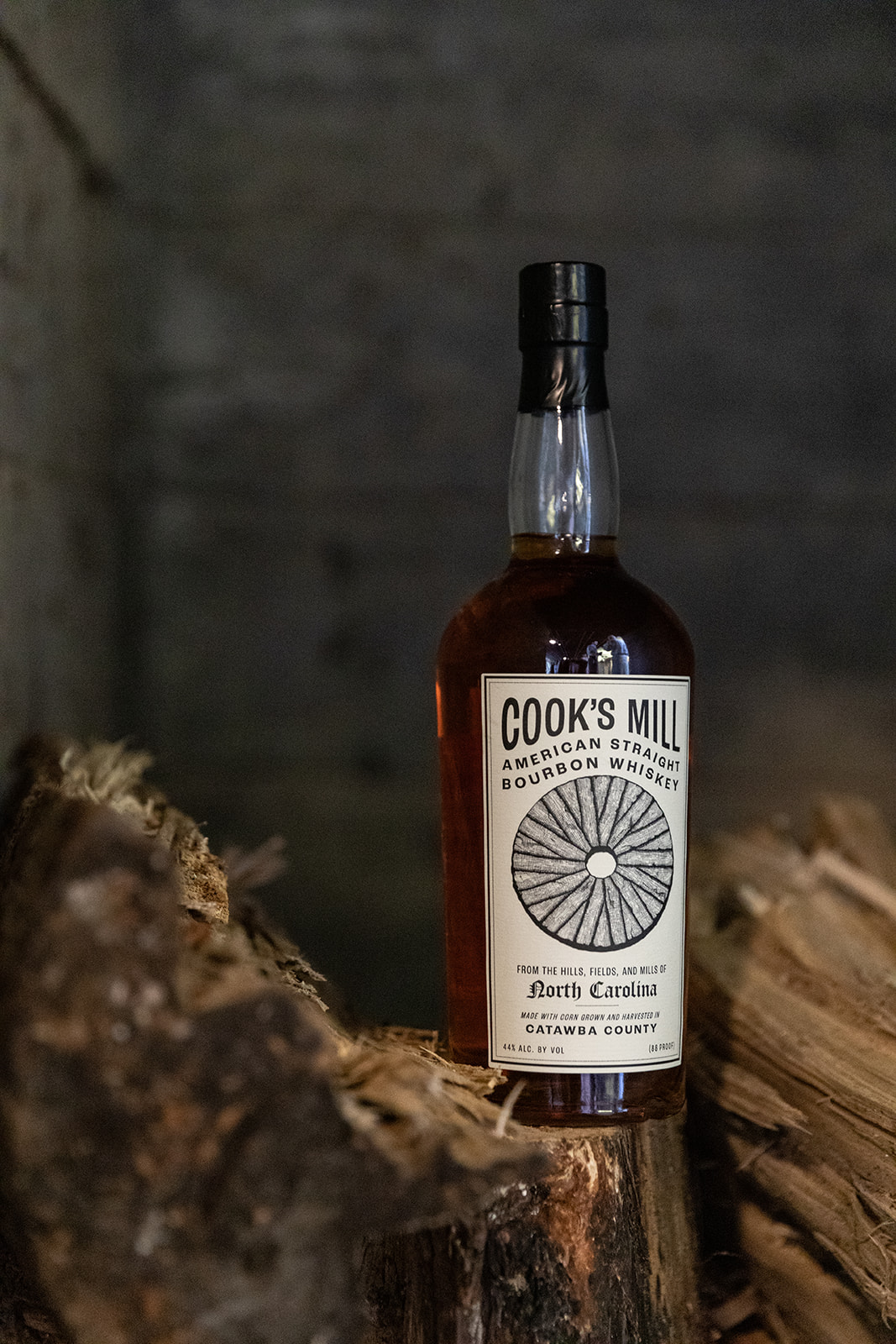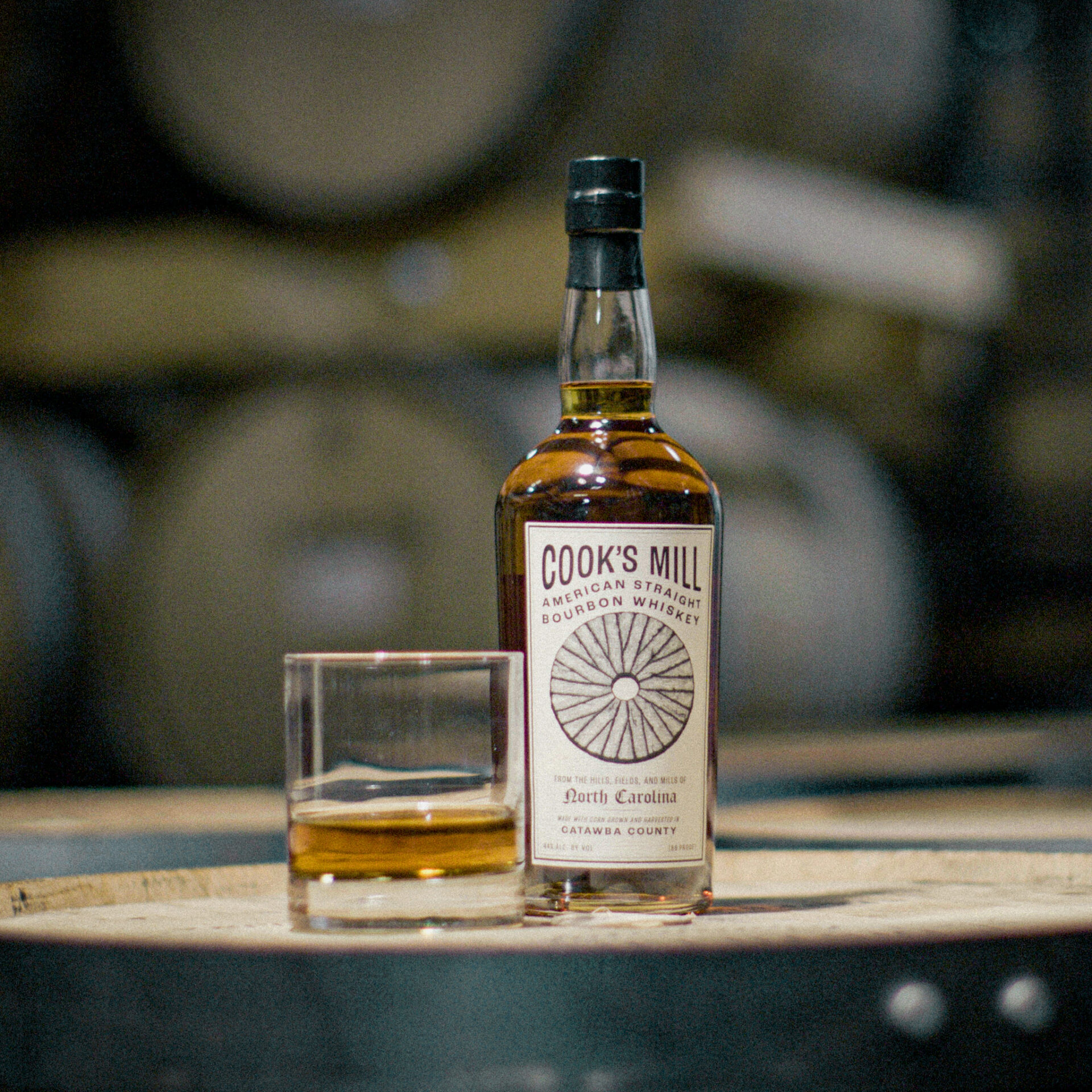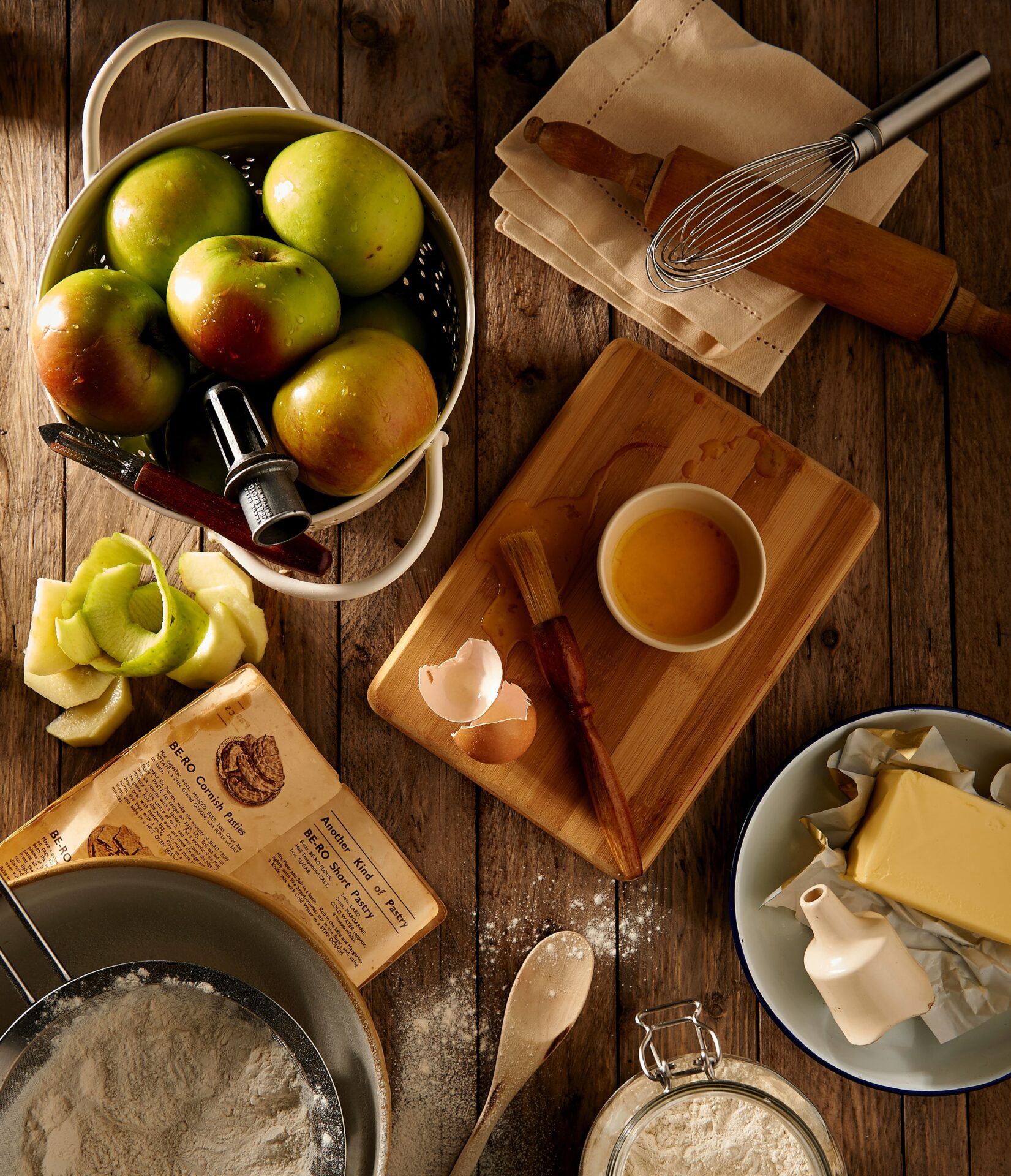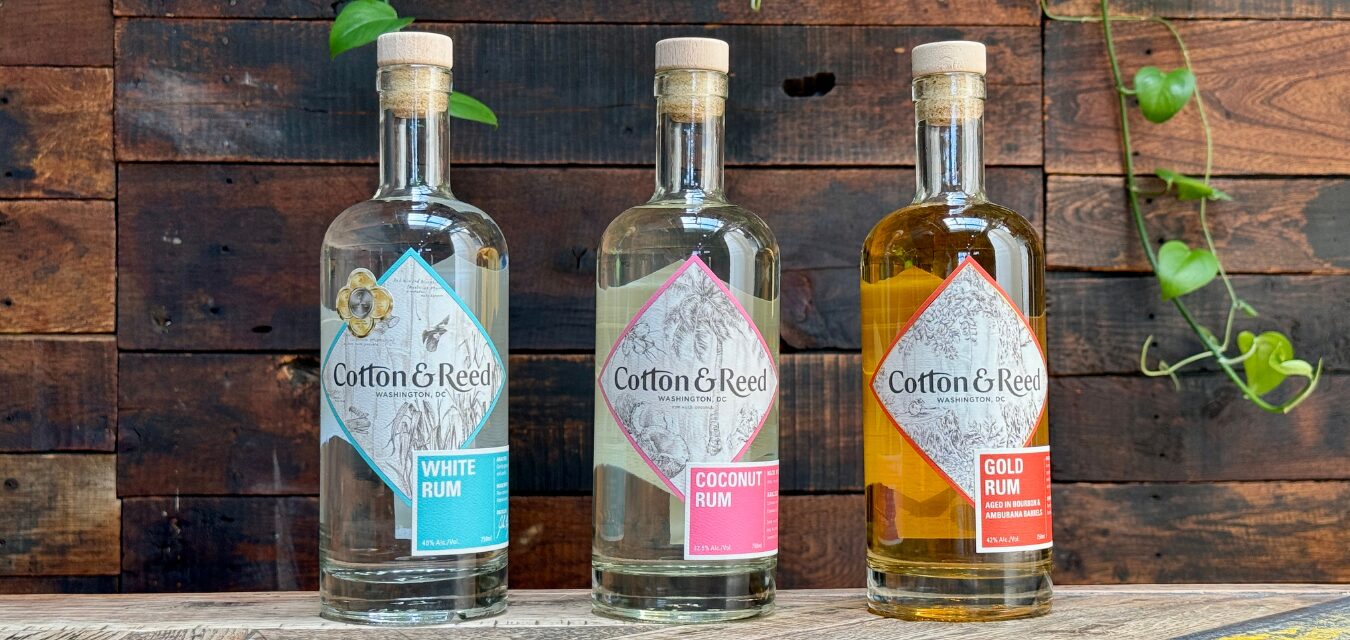If you ask most American whiskey fans where the spirit has its deepest roots, you’ll likely hear a resounding call for Kentucky. But it’s actually North Carolina that serves as the birthplace of American whiskey, since the first documented whiskey production took place there in the 1630s—Kentucky and Tennessee didn’t see their first distilleries open until the 1790s. Even into the late 1800s, North Carolina had the largest concentration of whiskey distilleries, but Prohibition knocked the state’s production down to almost nothing.
All of this information was news to Jason Queen when he purchased a gristmill in Alamance County, North Carolina, as a 10-year anniversary present for his wife. But the real estate developer (who also comes from a culinary background and runs a food hall in Raleigh) had a keen interest in preservation and once he purchased the property, and found corn kernels still preserved in the 1700s-era gristmill, he realized the property had a deeper story to tell. Years of research led him to the idea of revitalizing the mill through the production of a North Carolina bourbon and in 2023, he launched Cook’s Mill Whiskey as a way to honor the region’s history. He put the focus on utilizing heirloom strains of corn grown in North Carolina and committed to seeing a portion of the proceeds go back to restoring the mill. Today, the smooth, well-rounded bourbon whiskey from North Carolina is beating out Kentucky bourbons in blind tasting events around the country. We sat down with Queen to hear more about his whiskey and its rebellious roots.


TLP: Tell us more about the mill and its history.
Jason Queen: We purchased this gristmill in Mebane, North Carolina, in Alamance County, which is halfway between where my wife and I grew up. We bought it through Preservation North Carolina—I used to serve as a director of the organization. My wife and I love old buildings and preservation and I’ve made a career out of that in the real estate development world. So our thought was to renovate this mill as a weekend getaway, a little farm where we could go on the weekends with the kids. We bought it in 2017 and got into it and realized that it was still intact—it had probably been 50 or 60 years since anyone was in there and it had obviously been added on to and renovated over the 300 years of its lifespan. But we realized we couldn’t turn it into a residence. We did the research and learned it has direct ties to the American Revolution. It was built by Alexander Mebane, who the town is named after, and who served as a general in the Revolutionary war, and the mill was part of the regulator movement, which is what started the Battle of Alamance, the battle that sparked the American Revolution.
TLP: So what connected the dots to producing whiskey?
Jason Queen: We’d spent all this time trying to figure out what to do with the mill and in March of 2020, we were at the Charleston Wine and Food Festival and got to know Scott [Blackwell] and Anne [Marshall] of High Wire Distilling. Our conversations about farming and corn and Carolina corn production planted a seed in my head about how, agriculturally, corn is super important in North Carolina. There were still bags of corn in the gristmill so we decided to get it tested to see what kind it was. We starting talking with a professor at NC State who has dedicated his career to identifying varieties of heirloom corn and researching which were the best for making whiskey, and he said, “I’ll give you these five varieties of corn if you can help get them growing again, to reintroduce them to the soils of North Carolina.” We said yes and partnered with the Carolina Farm Stewardship Association who helped us identify farmers around the state who would help us grow it out. Through all of this we recognized there was an opportunity to really bring whiskey back to its original birthplace. I thought, what if we started a whiskey company using corn from North Carolina, with a portion of the proceeds going back to restore the property as a functioning grist mill? We felt like we could highlight the corn in North Carolina and the history of whiskey here, and make a solid product that might disrupt the whiskey industry a little bit. We could create a North Carolina whiskey category.

TLP: Talk about what’s in a Cook’s Mill’s bottle?
Jason Queen: For the flagship, which we released in October 2023, we wanted to use the same basic ingredients that everybody else uses to be our benchmark. We used corn grown in Catawba County and created our own mash bill. We also used that same mash bill to make a four-year barrel proof whiskey, which should be out by next summer. Plus, we are already making whiskey with those varieties of heirloom corn that are now being grown around the state. As that corn is being harvested and distilled, we’re already laying down the whiskey in barrels. That’s the long play, and those are all going to be limited runs, based on how much we’re harvesting at each site. The idea is that one harvest might only yield 40 to 50 barrels. We’ll use the same mash bills and have the same barrel chars on each; those will be constant so that you can really taste the difference of the corn. They’re each going to be unique, showing the different regions, climates, and soils across North Carolina, all with these different heirloom varieties. And we’ll rotate where the corn is grown so one season it might be Jimmy Red grown in the Western part of the state, the next year, it might be grown at another farm to the East. We think you’ll be able to taste the nuances, really showing the entire state from the mountains to the coast.
TLP: What will this all eventually mean for preservation of the mill?
Jason Queen: Starting in 2025, we should be able to start pushing our proceeds back to the mill, in order to restore and maintain it. We want to be stewards of the property and maybe, eventually, be able to run those heirloom corns through those millstones.
Cook’s Mill is currently available in North and South Carolina.
A Cook’s Mill Whiskey Cocktail To Make At Home

Fredericktown Freddie
Keep Reading
In the Spirit
In the Spirit: Company Distilling
See how Company Distilling has built a bottle and building for people to gather around.
In the Spirit
In the Spirit: Cotton & Reed | Listen
TLP sat down withJohn Hayes and Britt Fox to hear about their process, inspiration, and how Cotton & Reed gained notoriety in Washington, DC.
In the Spirit
In the Spirit: Nelson Brothers
TLP dives into the history of the Nashville-based Nelson’s Greenbrier Distillery and discusses its newest label of premier bourbons with the Nelson Brothers.
share
trending content
-
In the Spirit: Cathead Distillery
-
In the Spirit: Ego Tequila
by Hannah Lee Leidy -
In the Spirit: Company Distilling
by Erin Byers Murray -
In the Spirit: Tears of Llorona
by Hannah Lee Leidy












